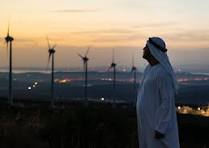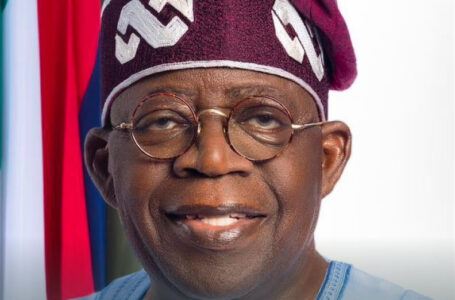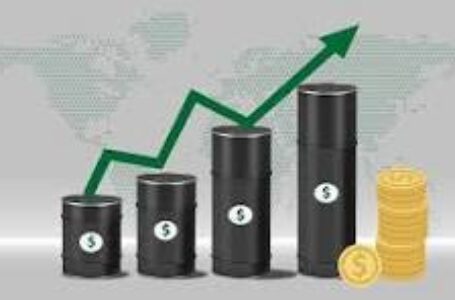Tinubu directs immediate release of funds for space assets maintenance
Dubai Leveraging AI, Nanosatellites, R&D to Achieve 100% Clean Energy By 2050

Dubai is charting an ambitious course to achieve 100% clean energy by 2050, driven by visionary leadership and a commitment to sustainability. Anchored by the UAE Net Zero by 2050 Strategy, the Dubai Clean Energy Strategy 2050, and the Dubai Net Zero Carbon Emissions Strategy 2050, the Emirate is positioning itself as a global leader in renewable energy and green economic transformation.

This bold vision not only addresses environmental challenges but also fosters economic growth and technological progress.
A pivotal moment in this journey was the UAE Consensus at COP28, where leaders endorsed plans to triple renewable energy capacity and double energy efficiency by 2030. The Dubai Electricity and Water Authority (DEWA), plays a central role in this transformation as the sole provider of electricity and water in the Emirate, driving initiatives that reshape the energy landscape.
At the heart of DEWA’s strategy is the Mohammed bin Rashid Al Maktoum Solar Park, the world’s largest single-site solar facility operating under the independent power producer model. Currently, the park reached 3,460MW capacity using both photovoltaic panels and concentrated solar power technologies, with an additional 1,200MW under construction. By 2030, its capacity is expected to reach about 7,260MW. This expansion will boost the clean energy share to 34% of Dubai’s overall energy mix and reduce carbon emissions by 8 million tonnes annually.
The solar park also boasts record-breaking features, including the world’s tallest solar tower at 263.126 metres and the largest thermal storage capacity of 5,907 megawatt-hours, achievements recognised by Guinness World Records.
AI: Optimising energy use and reducing emissions
Artificial Intelligence (AI) has become a cornerstone of Dubai’s energy transformation. DEWA employs AI across its value chain:

- In smart generation, DEWA created the world’s first AI-powered gas turbine controller for Jebel Ali Power Complex, with a digital twin system that boosts thermal efficiency by up to 3% and reduces fuel use.
- Proactive maintenance advances energy sustainability
- Its AI-enabled digital substations at 132/11 kV save 129 MWh annually while cutting 54 tonnes of CO₂ emissions per station.
- DEWA’s virtual employee Rammas has answered over 10 million inquiries, now enhanced with ChatGPT, and Microsoft Copilot has reduced operational costs by 50%.
The Progress:
- 20% current clean energy share, rising to 34% by 2030 with the Solar Park’s seventh phase.
- 28.6% reduction in net CO₂ emissions in 2024 compared to business-as-usual scenarios.
- World’s lowest Customer Minutes Lost (CML): DEWA achieved a world record in electricity Customer Minutes Lost (CML) per year, recording just 0.94 minutes per customer, compared to around 15 minutes in leading EU utilities.
R&D: Paving the way for clean energy innovation
Dubai’s clean energy ambitions are epitomized by the Sustainability and Innovation Centre at the Mohammed bin Rashid Al Maktoum Solar Park—a global hub for breakthrough renewable energy technologies. Housing patents on redox flow batteries and Tesla-supported energy storage pilots, the centre drives pioneering research. DEWA’s R&D Centre, also located at the Solar Park, focuses on solar power, smart grid integration, advanced energy storage, and clean energy-powered water desalination. Its innovative projects include cutting-edge photovoltaic systems for optimal solar capture and next-generation battery storage solutions to mitigate renewable intermittency. Strategic partnerships with top universities and research institutions ensure Dubai remains at the forefront of energy innovation.
DEWA’S innovative projects and initiatives
- Green Hydrogen: Middle East’s first solar-powered green hydrogen plant at the Solar Park produces 20 kg/hour.
- Pumped-Storage Hydropower: 250 MW Hatta plant with a storage capacity of 1,500 megawatt-hours is the GCC’s first. The hydroelectric power plant is designed as an energy storage facility with a turnaround efficiency of 78.9%.

Waste-to-energy
Dubai’s Waste-to-Energy Centre is the world’s largest, having 200 MW installed capacity of renewable electricity and cutting 2,400 tonnes of CO₂ annually by diverting landfill waste. This DEWA and Dubai Municipality project drives clean energy and a circular economy.
Towards a sustainable future
Dubai’s journey to 100% clean energy by 2050 exemplifies visionary leadership and unwavering commitment to sustainability. Through innovative initiatives and projects, Dubai is setting a global benchmark for cities seeking to meet their energy needs responsibly.
Reuters






